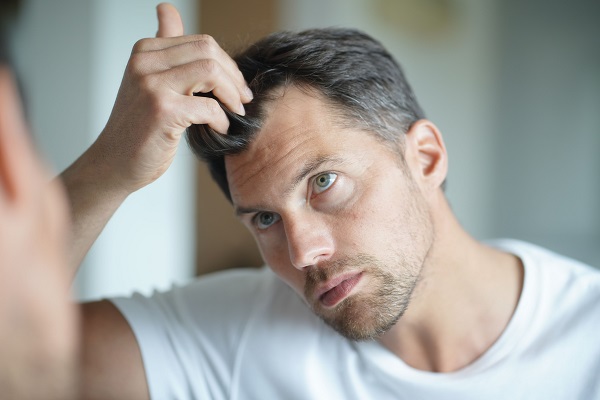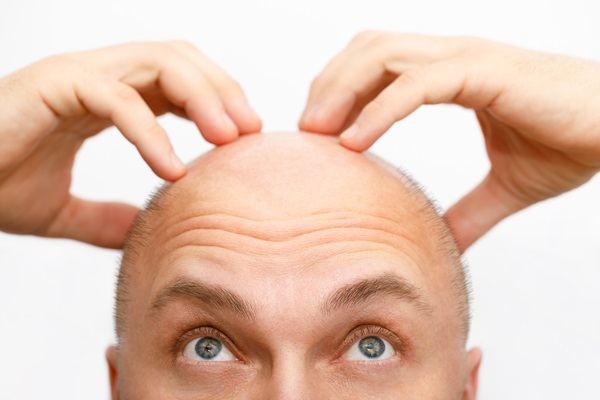What Is Androgenic Alopecia Treatment?

Some men and women need androgenic alopecia treatment. This condition is also referred to as androgenetic alopecia. The condition affects the self-image and psychological health of those who have it. Find out what androgenic alopecia treatment methods are available.
Minoxidil
A qualified hair doctor can prescribe minoxidil as an androgenic alopecia treatment. This is an FDA-approved topical treatment for the condition. It is available on the market. Minoxidil was first approved as an oral hypertension medication. But it had a side effect in the form of hypertrichosis.
Minoxidil does not widen the blood vessels in the scalp. This topical treatment allows hair growth even in areas without blood flow. Minoxidil is available in 2% and 5% solutions. Any patient can get them over the counter. Studies prove the effectiveness of these dosages. The 5% minoxidil solution is more potent than the 2% solution as an androgenic alopecia treatment.
This treatment transforms the existing hair from the small hair follicles into terminal hair. After this, the hair strand becomes stable. The existing issue in minoxidil treatment is compliance. The patient must keep using it as long as possible until results become evident. Patients must apply the solution on the scalp and not on the hair. It tends to leave a sticky byproduct on the hair strands.
The treatment response varies from patient to patient. For itchiness, patients can use topical corticosteroids while using minoxidil as an androgenic alopecia treatment. Results often show after about four to six months of continuous use. The maximum results will manifest after at least a year.
Finasteride
A hair clinic can also prescribe this as an androgenic alopecia treatment. Finasteride is an oral medication. It inhibits type II five-alpha reductase isoenzyme. This compound is active in the scalp’s hair root sheath. Blocking this isoenzyme prevents the transformation of testosterone into DHT (dihydrotestosterone). DHT leads to hair loss.
One milligram of finasteride can reduce the levels of DHT by at least 60%. Evidence of hair growth starts in the first four months of the treatment. Patients must also continue to take finasteride until the hair strands stabilize. At least 24 months of continuous use before deciding if it is effective enough. Studies show how this androgenic alopecia treatment stabilizes vertex hair loss in 80% of patients. It also does the same to frontal hair loss in 70% of patients.
Other androgenic alopecia treatment methods
Seeing the doctor first will determine if the patient can take these treatments. Continuing to take minoxidil or finasteride will be key in getting good results. Other forms of treatment are available. Hair replacement with hairpieces or hair weaves is possible if the patient cannot take either minoxidil or finasteride. Hair transplants are intrusive and need many treatments. Infection and scarring are common side effects as well.
The right androgenic alopecia treatment can help you regain your hair health
Ask your doctor first if you can take either minoxidil or finasteride. These medications have side effects capable of affecting your health. Other forms of androgenic alopecia treatment can be more applicable to you. Dedication to your treatment is the right thing to do when it comes to hair restoration. This could yield favorable results for your physical and psychological well-being.
Get more information about Dillon Hair Restoration in Schaumburg at http://dillonhair.com.
Check out what others are saying about our services on Yelp: Androgenic Alopecia Treatment in Schaumburg, IL.
Recent Posts
Hair loss can usher in mixed emotions and damper your self-esteem, whether or not you were expecting the day. Fortunately, hair plugs or grafts can provide patients with a full head of their natural hair. If thinning or balding is something you are experiencing right now, help is available at our Schaumburg office. First, review…
Hair thinning treatments are far more versatile than they get credit for. Our team works closely with each patient to determine the root cause of their thinning tresses and craft an effective treatment plan. Take a closer look at common causes of hair thinning and the various methods we can use to treat it.Many factors…
Hair loss can significantly impact people, affecting their self-confidence and interpersonal relationships. Fortunately, hair grafting, also known as hair transplantation, provides a viable option to restore the natural hairline. If you are still deciding whether to pursue a hair graft, here are three reasons to consider it.Unlike temporary solutions like wigs or hairpieces, a hair…
For those with wrinkled skin, Botox® injections can provide great relief. While it may be a natural sign of aging, the presence of wrinkles can be frustrating to some. Thanks to the scientific research and testing in the 1990s by several dermatologists, Botox® was approved in 2002 by the Food and Drug Administration for cosmetic…


